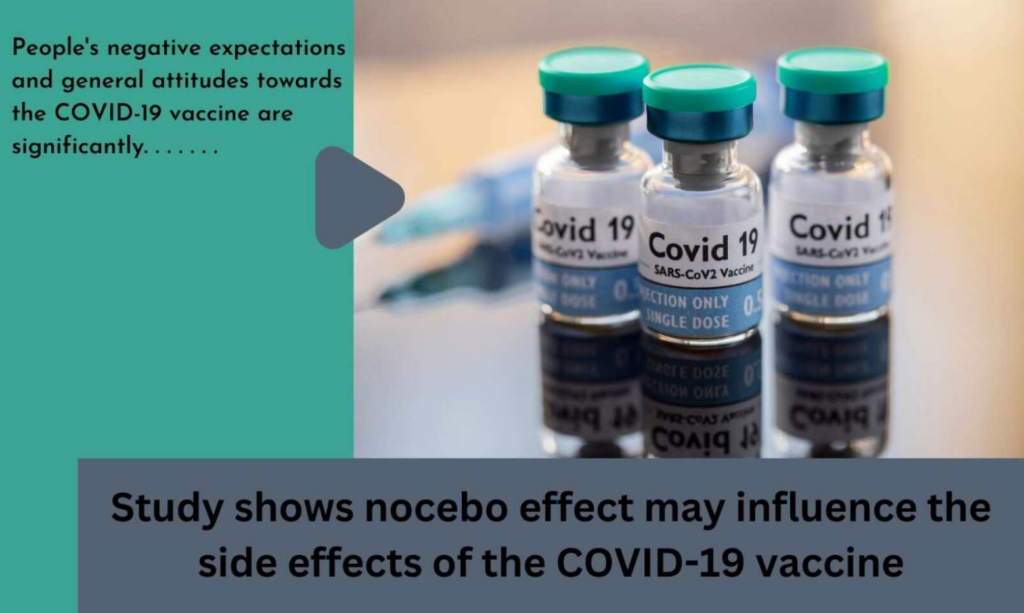The study suggests nocebo effect may affect COVID-19 vaccination side effects 2023

Negative expectations and attitudes toward the COVID-19 vaccine are substantially correlated with the incidence and severity of its most common adverse effects, including fatigue, muscle pain, headache, and injection-site pain.
This is suggested by a study published in the journal Psychological Science and conducted by scientists from the University of Bologna, who examined the influence of the nocebo effect, the opposite of the placebo effect, on adverse reactions reported after vaccination.
After immunization, the nocebo effect might cause undesirable consequences.
The Department of Medical and Surgical Sciences at the University of Bologna, in collaboration with a number of international research laboratories, decided to investigate whether and to what extent fear, expectations, and beliefs about the vaccine influence the occurrence and severity of potential adverse effects.

This is known as the “nocebo effect,” a phenomenon that occurs as a result of negative expectations and beliefs, which can activate or amplify potential adverse effects.
During the 15-minute waiting period following vaccination, the researchers examined the expectations, concerns, and beliefs of 315 individuals regarding the COVID-19 vaccine, as well as their trust in scientific institutions and certain personality traits.
“The most significant finding of this study is that psychological factors, such as an individual’s beliefs and attitude toward the COVID-19 vaccine, contribute significantly to the onset and severity of adverse effects and account for 30% of the variation in their onset and intensity,” said the study author.
The collected data demonstrated that the reported symptoms could not always be explained solely by the pharmacological and biological properties of the COVID-19 vaccine, thereby demonstrating the nocebo effect.
